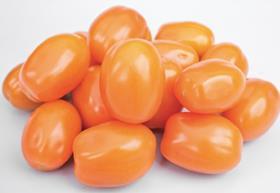
Swiss agrochemical group Syngenta hit the headlines recently thanks to its US$43bn acquisition by Chinese company ChemChina. In an exclusive interview, Eurofruit discusses the future with the seed division’s Jeremie Chabanis, EAME value chain manager for vegetable seeds and fresh products, portfolio manager for tomatoes Rik Lootens, and food & value chain manager northwest Europe Gerard Barendregt.
What are the key developments happening at Syngenta right now?
Jeremie Chabanis: Syngenta is being acquired by ChemChina, which is the largest chemical corporation in China. What is important to highlight is that this will not change anything about Syngenta and its fundamental autonomy, or its brand commitment. We will still have the freedom to operate in the way we have always worked – our headquarters will still be in Switzerland, for example. It is important for our customers to know that our brand value will remain the same, as will our commitments and services to customers. Customer experience is still our main focus, delivering good value along the value chain. This, in a nutshell, is what we believe is important, and it is too early to say anything else.
What does this mean for the vegetable seed business?
JC: It will ensure continuing choice for growers and ongoing R&D investment. If anything we will be even more dedicated to the vegetable seed industry, with more focus and even greater resources. We are doing a lot of investment in research and development and in our facilities. Our ambition is to use our passion for innovation and our close connection with customers to support the industry and meet consumer demand for high-quality vegetables all year round.
For tomatoes, and the vegetable sector more broadly, what are customers demanding?
JC: We always look at consumers and consumption habits, which are of course closely linked to wider industry trends. What we see more and more is that innovation is the main way to differentiate our products in-store, on the shelves. Greater communication, marketing and merchandising at the point of sale are also more critical to highlighting your product, as well as creating segmentation in the category.
On top of all of this I would say taste is important, as this is what the consumer is expecting, while convenience is also critical. One of the challenges is adapting everything to multi-channel consumption – this is not easy when you are a vegetable seed company but we want to try to focus on products that satisfy the end customer. Sustainability, health, on-the-go consumption, all of our research and analysis into consumer demands ultimately drives us to smaller fruit sizes and smaller packaging.
What we see is that simply eating is not anymore seen as an experience. The real food experience – particularly in the north of Europe – is more about discovery and fun, it goes beyond simply eating meals for nutrition and sustenance.
The full interview appears in the June issue of Eurofruit Magazine



